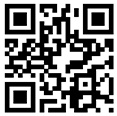Welcome to jiangxi province xishan school website!
Consulting | Route | Contact 中文版 | English
15
2019
-
05
[Educational Research] How to love children?
About the educator Kozak, I realized it later, because of this book "How to Love Children", I know that he is an educator, writer and social activist on the same level as Chopin and Marie Curie in Poland. His works and Ideas have become the ideological basis of the UN Convention on the Rights of the Child. In 1978, to commemorate his centenary, the United Nations declared that year the "International Year of the Child". 2012 is the 70th anniversary of Kozak's death, and Poland specially designated the year as the "Year of Kozak". An important contribution of treating Kozak as children is the discovery of the needs and rights of childhood. "Discovering Children" is the loudest in the history of modern education
The category:
Education to explore
When faced with a baby with infinite possibilities, almost every mother will be filled with ambitious hopes, but the implementation of traditional habits and even bad habits. Love becomes a charity, a compulsion, a deal, even a gamble. In Kozak's view, when you say "my child", you are already wrong; when you say "he should have...I want him...", you are wrong again. Because the child is not yours, and when he is born, "the world has taken the child away."
Kozak believes that "the child is not a genetically prepared land waiting for us to sow and grow what we want. His personality is formed long before he is born, and the job of the parents is only as he grows up. Support him and help him.” “Children are not lottery tickets, they are not born to win a master’s certificate or a bust in a theatre foyer. Within each child is a unique spark that ignites joy and authenticity. The Campfire. Perhaps in ten centuries, it will spark the fire of genius, surpassing its own nation, and bringing the light of a new sun to all mankind."
On the upbringing and education of children, Kozak has many correct views and many "dissents". He opposes verbal and physical violence against children, believes that the person who knows children's needs best is the children themselves, empowers children to respect their own opinions and property rights, and advocates equal treatment of children and adults. He believed that "children have the same ability to understand and reason as adults, but they don't have the same experience." Therefore, children should be with children, not at home. Children gain experience through their own activities and practices. "Children should eat as much as they want, no more and no less." He said it was a crime to force children to sleep when they didn't want to. He personally trusts and liberates children. He served for 30 years in an orphanage for Jewish children. The orphanage had a "parliament", a "court", a "newspaper", a "notary office" and other institutions to encourage children to manage themselves. "
On August 5, 1942, Kozak led about 200 children and dozens of teachers from the Jewish ghetto in Warsaw to the station, where they were taken to a Nazi death camp in Germany. The children were close together, holding their favourite toys and books, carrying the King Matt I flag, and the boys in the front were playing the violins.
This picture has been frozen in history. The unique spark in the hearts of children ignited by his great love is "transcending their own nation and bringing the light of a new sun to all mankind".
Hot news


 0791-85607688
0791-85607688 

 E-mail
E-mail 